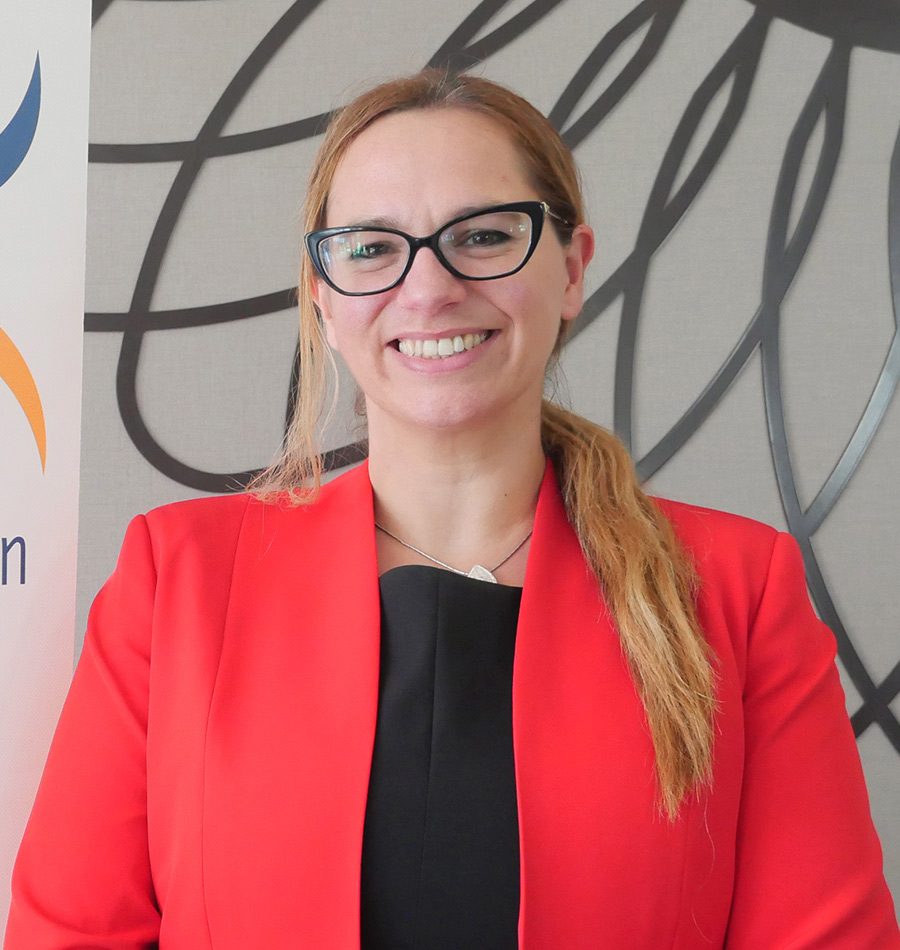Simon Bonk (Telio) argues that strong partnerships between vendors, jurisdictions, and other stakeholders are crucial for driving innovation and positive change in the corrections system. Read More
Offender Rehabilitation
Read this piece by two leading experts in correctional facility design, sharing innovative approaches to transform prisons into environments that promote healing and rehabilitation. Read More
Discover the key insights from UNICRI's latest report, showcasing how digital technologies can transform prisoner rehabilitation. Read More
Learn how South Australia's innovative use of technology has led to record-low reoffending rates, and discover the impactful role of Unilink's Prisoner Self-Service kiosks. Read More
Uncover how the R2COM project is revolutionising post-release reintegration and radicalisation prevention in a piece featuring insights from project partners and participants. Read More
To address the underlying causes of criminal behaviour, rooted in socio-economic disparities, mental health issues, and systemic injustices, leaders have been challenged to look beyond the boundaries of their systems and institutions and actively engage with other agencies, policymakers, and the broader community. In this edition, we feature interviews with correctional leaders and articles by experts on transforming the system through upstream and downstream collaborations, policy reforms, digital technologies, and community engagement. Read More
MHS Public Safety explores how we can strengthen rehabilitation and reintegration by providing education, mental health support, and improved communication. Read More
Rafael Velasco Brandani, National Secretary for Penal Policies, Ministry of Justice and Public Security, Brazil Read More
Jaime Tapia, Advisor on penitentiary issues to the Basque Government Read More
Tanja Rakušić-Hadžić, Head of the Cooperation in Police, and Deprivation of Liberty Division of CoE's Human Rights and Rule of Law Directorate Read More
General Óscar Naranjo Trujillo, Former Director General of the National Police and former Vice-President of Colombia Read More
Rui Abrunhosa Gonçalves, Director-General of Reintegration and Prison Services, Portugal Read More
Mauro Albuquerque, Secretary of Penitentiary Administration and Resocialization, State of Ceará, Brazil Read More
Karen Ellis, Deputy Solicitor General, (Correctional Services), Ontario, Canada Read More
Laurent Ridel, Director of the Prison Administration, France Read More
Katja Meier, State Minister of Justice and for Democracy, Europe, and Gender Equality, Saxony, Germany Read More
Haliru Nababa, Controller General of Corrections, Nigerian Correctional Service Read More
Vincent Van Quickenborne, Minister of Justice, Belgium Read More
Nordin Muhamad, Commissioner General of Prisons, Malaysia Read More
The EUTEx project aims to create a European framework for rehabilitating extremist offenders, considering gender aspects and risk assessment while fostering collaboration among EU member states. Read More
Discover how evidence-based public security measures can help Latin America combat organised crime and reduce urban violence effectively. Read More
Explore the challenges in preventing radicalisation and rehabilitating violent extremists, and learn about effective strategies implemented across different jurisdictions. Read More
The UNODC aids Iraq in prison reform, working with the government and partner nations to bolster corrections, counter-radicalisation, intelligence, and global anti-terrorism efforts. Read More
Dr Reid Meloy (MHS Public Safety) explains how the Terrorist Radicalization Assessment Protocol-18 (TRAP-18) is helping to mitigate the threat of lone-actor terrorism through effective risk assessment and early intervention strategies. Read More
This article highlights post-prison challenges, including radicalisation risks, underscores the need for thorough assessments to aid reintegration, and introduces the R2COM project for tailored assessment tools and NGO involvement in preventing extremism. Read More
Telio emphasizes the need for reevaluating the treatment of offenders, promoting a community-centric approach, focusing on rehabilitation and innovation, ensuring equity and accessibility, and fostering collaboration for a more compassionate and socially responsible correctional system. Read More
Learn more about the vital role of rehabilitation in correctional facilities, and how NCIC's RISE Method promotes education, skills, and communication for the incarcerated. Read More
Renato Casagrande, Governor, Espírito Santo, Brazil Read More
Jana Špero, Secretary General, Confederation of European Probation (CEP) Read More
Joint interview with members and experts of the Council for Penological Co-operation of the Council of Europe Read More
Shie Yong Lee, Commissioner, Singapore Prison Service Read More
Bryan Stirling, Director, South Carolina Department of Corrections, USA Read More
A detailed study on the effects of access to video visitation in prison in the recidivism rate of individuals after their release. Read More
Exploring the use of Virtual Reality in IPV therapy - a promising approach for managing risk factors and reducing recidivism. Read More
Learn about the benefits of using well-validated risk and needs instruments and how they can facilitate evidence-based case planning and treatment for individuals - by MHS Public Safety. Read More
An update on the expansion of the Smart Prison project in Finland, which provides digital devices and services to inmates for communication, task management, and rehabilitation purposes. Read More
A new vision requires modern offender management systems, capable of responding to the issues facing prison administrations today, with the flexibility and ability to learn and respond to issues that we will face in the future. Read More
Discover how in-cell telephony has transformed the French prison system, providing benefits that support its rehabilitative framework and contribute to institutional peace. Read More
Unilink explores the recent policy changes and innovations within the UK Probation Service, and presents a solution for improving the probation experience for both service users and practitioners. Read More
Read about five key dimensions for correctional facilities to succeed in digital transformation and improve outcomes for both staff and inmates. Read More








































